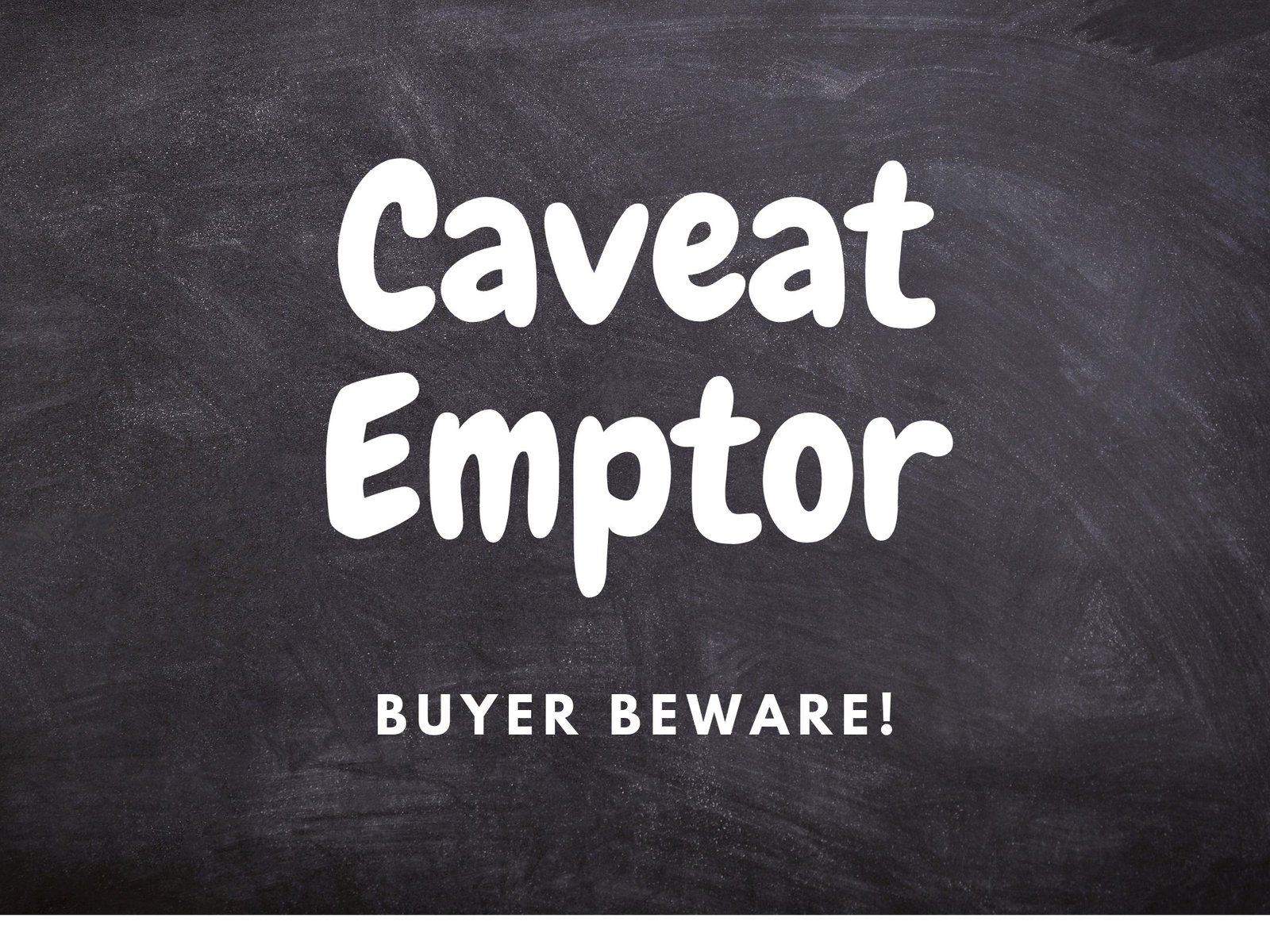Caveat Emptor: Slow death of the Latin phrases “ let the buyer beware” – Caveat Emptor
Introduction
Due to condition of modern commerce and trade the old rule of caveat emptor has been suppressed by the rule of caveat venditor and it is dying slow death as consumers rights and interest is given importance these days due to experiencing huge exploitation from long time. So, before coming to the main points let us briefly know about the term caveat emptor and caveat venditor.
Caveat Emptor
The word caveat emptor is a latin phase which means “ let the buyer beware” this phase but burden of due diligence on the shoulder of the purchaser of goods and services. Caveat emptor is regarded as the fundamental principle in commerce and contractual relationship between purchaser and the seller .
Caveat emptor is the part of long statement that is “ caveat emptor , quia ignorare non debuit quod jus alienum emit” that means “ let the buyer beware’ for he ought not to be ignorant of the nature of the property which he is buying from another party”. There is always a assumption that the purchaser of goods and services will ensure or inspect about the product before buying it. They will ensure about their own satisfaction from the purchased product .
Salient feature of the caveat emptor principle :-
- It is the duty of the purchaser of the product to examine and inspect the product to his satisfaction before buying it.
- If there is any defect in the product which is known after buying the product in that case seller will not be liable.
- Duty of the purchaser is ‘ to take care’ and to inspect product before purchasing no ‘to take a chance’.
- If the product bought is not suitable for the object for which it was purchased ,then seller will not have any responsibility.
Caveat venditor
Caveat venditor means “ let the seller beware” in latin term. According to this principle the seller have the responsibility for providing all the information about the product. This principle also says that seller can also be deceived in the market transaction and they are also forced to be accountable for the product they are selling . this principle discourages seller for selling unreasonable, bad quality products to buyers.
Salient feature of the caveat venditor:-
- It is mandatory for the seller that he/ she should have knowledge of the condition and warranty of the product.
- If the goods do not come up with the standard fixed by the law even though proper care was taken seller will be accountable.
- There should be discloser of the information about the goods to avoid any kind of dispute.
- There should not be unfair trade practice by seller.
- The defect which are not apparent to a person of normal intelligence in such case the responsibility will lie on the seller.
Caveat emptor for the first time suffered a blow by case priest v. last. It was observed that ‘ the reliance placed by the seller for the purpose of buying a ‘ hot water bottle’ was taken into account for the purpose of allowing the buyer to reject the goods’. This was the first that importance to reliance placed by the buyer on the sellers skill and judgment . this principle is settled principle of law today. The obligation of the seller, it is submitted , should be irrespective of his own knowledge and skill, because what matter is, ‘ not what seller has’ but, ‘what seller is expected to have’ .
Consumers were subjected to exploitation by unscrupulous traders and service provided so, this was the reason that the need for the protection of consumer was felt to reach the democratic goal of ‘ justice within reach’ and consumer protection Act, 1986 was enacted. Long application of the maxim caveat emptor is being suppressed by the caveat venditor as government is concerned by the consumers interest. Consumer protection Act, 1986 , has provided a three tier quasi- judicial machinery at national , state and district level. Know seller have the responsibility to deliver all the information related to the product to the buyer and is also liable for selling bad quality product , doing unfair trade practice and other activity which is against the law and will be made liable for the compensation.
In todays scenario caveat venditor takes active role this can be seen from different case laws:
In Mandava Krishna Chaitanya v. UCO Bank, Asset Management it was observed that, ‘the concept of as is where is and as is what is basis has lost its significance in current commercial milieu and the principle of caveat venditor is more on rise as compared to the old principle of caveat emptor’.
Request for seeking Adjournment in the application under Section 127B of Customs Act, 1962
In a case it was held that, ‘when the rule of caveat emptor prevails, it is for the purchaser to either verify the property or invite complication through litigation. However , the rule of caveat emptor (‘ let the buyer beware ) is replaced by the rule of caveat venditor ( let the seller beware) and when bank or financial institution put the property on sale, they must show clear title to the said property’ .
In the case of National Insurance Company limited, New Delhi v. Krishna Devi w/o Sudesh Kumar and others it was said that, ‘ it may not be out of place to observe at this juncture that is high time that in a consumer oriented market, the rule of caveat emptor must give way to the rule of caveat venditor’.
Thus, these were the few cases that shows that in todays time the rule of caveat venditor is considered to be most appropriate then the outdated rule of caveat emptor. It can be said that the rule of caveat emptor is dying a slow death and being taken over by the subsequent rule of caveat venditor. This change in the importance is making balance between the rights and duty of the buyers and sellers. The change and increased consumer movement in India and across the has indeed paved the root for better and bright future of the consumers.
Author: Nidhi Kumari (Intern)








![Tax Law Internship Opportunity at Legum Attorney [Chamber of Ashish Panday], Delhi [Tax Litigation]: Apply by 2nd November](https://www.ourlegalworld.com/wp-content/uploads/2024/10/Legum-Attorney-Intern.png)
